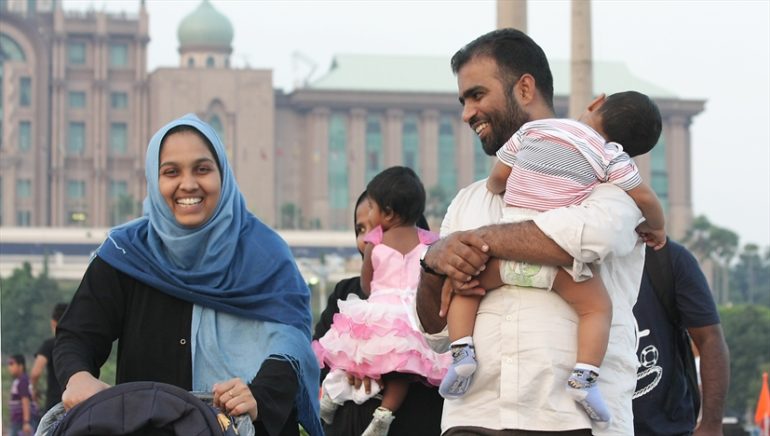
Malaysia’s government has removed a clause from the new Marriage and Divorce Law that would have prohibited the conversion of children to Islam with consent of just one parent after conservative Muslims protested against it, reports the Malay Mail Online.
The new Article 88 (A) had stated that should a non-Muslim spouse convert to Islam, their child’s conversion should depend on both parents’ consent and be subject to the child’s wishes when it turns 18.
The provision was supposed to help “resolve interfaith custody conflicts between Muslim and non-Muslim parents”, said chairman of the country’s Human Rights Commission (SUHAKAM), Tan Sri Razali Ismail, expressing his disappointment at the withdrawal. “It would have established coherent standards for reconciling the principle of the best interests of the child with the Constitutional rights of parents in the exercise of the right to freedom of religion,” the New Straits Times reports him as saying.
The clause withdrawal will have major consequences for families when one parent decides to convert to another religion, as unilateral conversions in front of Sharia courts will continue, even though divorce is a civil-law matter.
There have been cases where one parent has converted children, born into a different faith, to Islam, when the appeals of the other, usually the mother, are brushed aside by Islamic authorities who espouse the supremacy of Islam.
Malaysia has two parallel courts, Sharia and Civil, and according to Thomas Muller, analyst at the World Watch Research unit of Open Doors, “this issue has been a problem for many families and illustrates the difficulties of having both … courts without sufficient clarity about who has the final word in such matters”. He says “the government’s decision can be understood as another step towards placating an increasingly conservative Islamic society in the light of elections scheduled for August 2018”.
‘Extensive emotional sufferings’
In a statement, a Minister in the Prime Minister’s Department, Datuk Seri Azalina Othman, said “the government was amending the Bill to prevent any conflict with the Federal Constitution, and that the amendment was in line with the ‘stare decisis’ doctrine, which obligates courts to look to precedent when making decisions, where the highest court’s decision on the interpretation of Article 12(4) of the Federal Constitution is bound”.
Article 12(4) says that the religion of a person below 18 years shall be decided by “his parent or guardian” and, according to the Malaysian Bar interpretation, provisions in the Constitution prescribe that all words in the singular also include the plural.
Sisters in Islam (SIS), a civil society group committed to promoting democratic rights within the framework of Islam and universal human rights, pointed out that unilateral conversion cases often inflict extensive emotional sufferings onto parents, saying “SIS would like to reiterate that the current law has failed to serve justice or provide substantive legal recourse for the non-converting spouse which subsequently will cause more pain and harm towards them,” as reported by Malay Mail Online.
Freedom of Religion
In March 2016, the Federal Court, in a landmark ruling, upheld the rights of Rooney Rebit who became a Christian when he was 24 years old after his parents converted from Christianity to Islam when he was a child.
The judge then ruled that Rebit could not be considered to have officially professed Islam, because it was not his choice to embrace the religion. In her ruling, Judge Yew Ken Jie said: “He does not need a Sharia court order to release him from Islam, because freedom of religion is his constitutional right and only he can exercise that right.”
She added: “His conversion to the Muslim faith was not of his own volition but by virtue of his parents’ conversion when he was a minor. He is not challenging the validity of his conversion as a minor. But having become a major, he is free to exercise his right of freedom to religion and he chose Christianity.”
Rebit had not challenged his conversion to Islam; for if he had done so, the case would have had to be judged by a Sharia court – because secular courts have ruled that they do not have jurisdiction on Islamic issues. Instead he appealed to his freedom of religion, which is guaranteed under the Constitution.